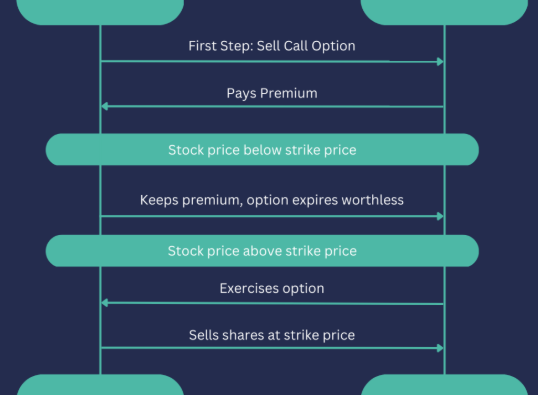
Risk management is more than a career—it’s a critical function in modern business. In a world where uncertainty can disrupt even the most well-planned strategies, organizations rely heavily on skilled professionals who can anticipate, assess, and manage risk. If you’re considering a career in this evolving field, becoming a certified risk manager could be your next strategic move.
Here’s a comprehensive look at what it takes to earn this credential and build a successful career in risk management.
Who Is a Certified Risk Manager?
A certified risk manager is a trained professional equipped to analyze and handle the variety of risks that businesses encounter. These can include financial threats, compliance issues, operational disruptions, and reputational damage. Certification demonstrates expertise in key areas such as risk evaluation, prevention planning, and regulatory compliance.
Risk managers are essential to protecting a company’s assets and ensuring long-term resilience.
What Are the Responsibilities of a Risk Manager?
Risk managers work to safeguard an organization by identifying vulnerabilities and developing proactive strategies. Their day-to-day tasks often involve:
- Pinpointing financial, legal, or operational risks that could affect the business.
- Creating policies and frameworks to mitigate or avoid risk.
- Collaborating with departments to maintain regulatory compliance.
- Conducting regular assessments to gauge the effectiveness of risk controls.
- Advising senior executives on risk exposure and mitigation strategies.
- Monitoring economic and market conditions that may influence risk.
- Designing contingency plans for unexpected scenarios.
- Educating staff on risk policies and procedures.
Their efforts are central to supporting organizational stability and sustainability.
Steps to Becoming a Certified Risk Manager
1. Obtain the Necessary Education
Most risk managers begin with a bachelor’s degree in finance, business administration, economics, or a related discipline. Some roles may require or prefer a master’s degree. While not essential at the start, advanced qualifications such as an MBA or a specialization in risk management can be beneficial over time.
2. Build Industry Experience
Entry-level roles or internships are great entry points for developing relevant skills. Working in areas such as finance, insurance, or compliance helps in gaining real-world exposure to risk-related responsibilities. Practical experience is crucial for understanding how theory translates into effective strategies.
3. Pursue Professional Certifications
Certifications enhance credibility and improve job prospects. Several recognized certifications for risk professionals include:
- Certified Risk Manager (CRM)
- Financial Risk Manager (FRM)
- Professional Risk Manager (PRM)
- Certified Fraud Examiner (CFE)
- Chartered Enterprise Risk Analyst (CERA)
These credentials validate your proficiency and commitment to the field.
4. Earn Specialized Certifications (Optional)
As your career progresses, additional certifications tailored to specific industries can further establish your expertise. Examples include:
- GRC Professional Certification (GRCP)
- Certified Risk Management Assurance (CRMA)
- Certified Professional in Healthcare Risk Management (CPHRM)
- Operational Risk Manager (ORM)
These designations provide opportunities to specialize and grow into advanced roles.
Essential Skills for a Career in Risk Management
To thrive in risk management, you’ll need a versatile set of competencies:
- Analytical Thinking: Evaluate complex data sets and identify risk patterns.
- Financial Insight: Understand financial metrics and assess their impact on risk exposure.
- Legal Awareness: Stay informed about regulatory developments that affect operations.
- Effective Communication: Present assessments and strategies clearly to stakeholders.
- Problem-Solving: Design solutions in ambiguous or high-pressure scenarios.
- Flexibility: Adapt strategies in response to changes in the business environment.
These capabilities form the backbone of a risk manager’s effectiveness.
Key Types of Risk Management
Risk management can take various forms depending on the industry or focus area:
- Financial Risk: Involves managing risks related to market volatility, credit exposure, and investment decisions.
- Operational Risk: Covers internal processes, human errors, and system failures that can disrupt operations.
- Strategic Risk: Relates to long-term business planning and competitive positioning.
- Compliance Risk: Addresses adherence to laws, regulations, and internal policies.
- Reputational Risk: Concerns public perception and stakeholder trust.
Each category demands a tailored approach and specific expertise.
Common Risk Management Job Titles
Depending on the structure and size of the organization, professionals in risk roles may hold titles such as:
- Risk Analyst
- Loss Control Specialist
- Risk Advisor
- Insurance Analyst
- Risk Consultant
These roles often lead to senior positions like Chief Risk Officer or Director of Risk Management.
What Kind of Salary Can a Certified Risk Manager Expect?
Earnings vary by location, experience, and industry, but certified risk managers are generally well-compensated. In the United States, the average salary is approximately $129,000 annually. In India, salaries for certified professionals can reach around ₹12 LPA. Those with advanced certifications or working in high-stakes industries often command higher compensation.
Is Risk Management a Growing Field?
Yes, demand for skilled risk professionals is rising. Companies across sectors—finance, healthcare, tech, and more—are prioritizing risk preparedness. With increasing regulatory scrutiny and rapidly shifting market dynamics, risk managers play a vital role in guiding strategic decisions and protecting organizational value.
Frequently Asked Questions
What does a risk manager do?
They identify potential risks, develop plans to mitigate them, and advise leadership on effective responses to minimize exposure.
How long does it take to become a risk manager?
Typically, it takes four years to complete a relevant degree, with another two to five years of experience and certification for advanced roles.
What are the eligibility requirements?
A bachelor’s degree and industry experience are essential. Professional certifications further enhance eligibility.
Is this a good career path?
Absolutely. It combines strategic decision-making, financial expertise, and critical thinking—making it both intellectually rewarding and financially competitive.
Conclusion
Becoming a certified risk manager opens the door to a dynamic and impactful career. With a solid educational foundation, meaningful experience, and recognized certifications, you can position yourself as a valuable asset in any organization. As businesses navigate increasingly complex environments, the need for professionals who can anticipate and manage risk continues to grow. If you’re analytical, adaptable, and driven by strategy, this career path may be the perfect fit.









